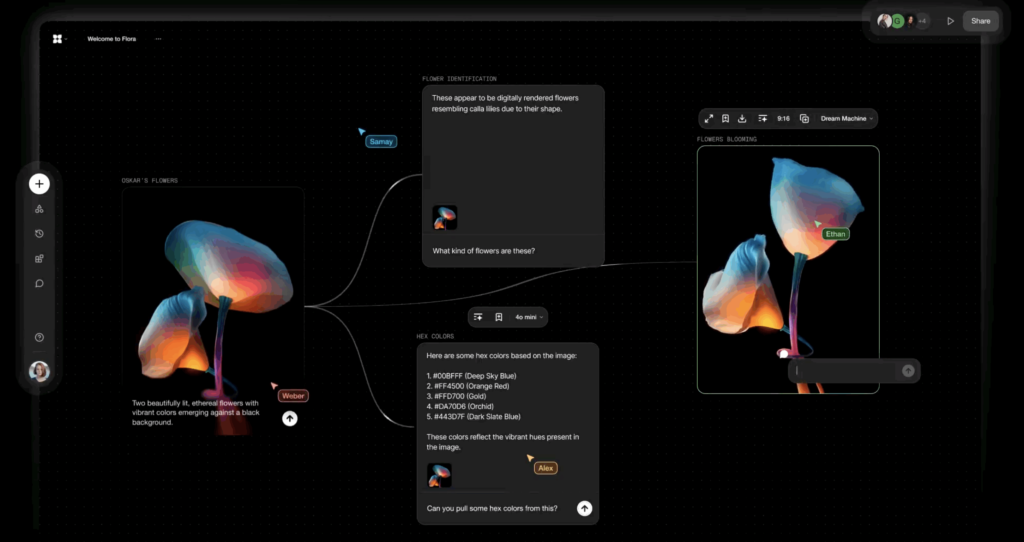As we step further into the digital age, the intersection of artificial intelligence (AI) and business is more relevant than ever. One particular area gaining traction is AI research automation, an emerging trend that has the potential to transform how businesses operate, engage with customers, and scale globally. This article dives deep into the intricacies of AI research automation, highlighting real-world applications, benefits, and the future landscape of e-commerce and branding.
The Evolution of AI Research Automation
Imagine a world where businesses no longer spend countless hours sifting through data or conducting market research, but instead, utilize intelligent systems that can do it at lightning speed. AI research automation leverages self-learning AI operating systems that analyze vast amounts of data, drawing meaningful insights that drive decision-making processes. This capability is rapidly becoming a cornerstone of effective brand strategies and enhanced consumer engagement.
The Human Element: Balancing Automation and Personal Touch
Despite the rise of automation, it’s essential to remember that the human element remains crucial in branding and marketing. Consider a recent campaign by Coca-Cola, which successfully merged AI research with a personal touch. By using AI-driven analytics, Coca-Cola identified consumer preferences, allowing them to tailor advertisements based on regional tastes. This not only elevated brand positioning but also made customers feel a deeper connection to the brand.
The Role of Self-Learning AI Operating Systems
Self-learning AI operating systems can effectively process and analyze data over time, continuously improving their functionality surprisingly without the need for explicit reprogramming. Brands are increasingly turning to these automated systems to optimize their marketing strategies and customer experiences.
- Enhanced Customer Insights: Companies like Amazon utilize self-learning systems to analyze shopping behaviors, allowing them to offer personalized product recommendations. By automating this research, Amazon not only improves its sales conversion rates but also fosters customer loyalty.
- Efficient Product Development: Consumer goods companies are employing AI tools to gather feedback on new product launches. For instance, Unilever uses AI-driven research to test advertising campaigns before they air, refining their approach based on real-time consumer data.
- Dynamic Content Creation: Media companies employ AI systems to analyze trending topics and consumer preferences, automating content generation that resonates with audiences. BuzzFeed’s AI-driven quizzes are a prime example, effortlessly engaging millions.
AI Search Engine Optimization: A Game Changer
Integrated with AI research automation, AI search engine optimization (SEO) is transforming how brands approach digital marketing. By using AI to analyze keyword trends and consumer search behaviors, businesses can refine their online presence remarkably.
Take Grammarly, for instance. Through the incorporation of AI into their marketing strategy, Grammarly analyzes user data to create content that not only enhances their SEO capabilities but also meets the immediate needs of their users. This brand exemplifies how real-time analytical insights can shape digital marketing strategies profoundly.

Global Market Expansion and Cultural Adaptation
As brands seek to expand their reach internationally, the application of AI research automation becomes advantageous. Localization, or adapting products and marketing strategies to fit local cultures and languages, is critical. AI tools facilitate this process by analyzing regional data and identifying cultural tendencies.
- Consumer Behavior Analysis: Brands like Netflix utilize AI to recommend shows based on local tastes. Analyzing viewing patterns in different countries allows them to curate relevant content, enhancing customer satisfaction globally.
- Cross-Border E-Commerce: Platforms such as Shopify now integrate AI research tools that enable small businesses to analyze potential foreign markets seamlessly. This means even a boutique shop can identify trends in Japan or Germany, developing strategies for effective entry.
A Case Study of Success: L’Oréal’s Use of AI
L’Oréal illustrated the power of AI research automation brilliantly when launching its AI-powered virtual assistant, ModiFace. The beauty brand set out to transform the consumer experience through personalized engagement. By employing self-learning AI systems to conduct market research, L’Oréal was able to tailor their product recommendations and marketing messages effectively. The outcome? A 25% increase in online sales in just one year—a remarkable testament to the benefits of integrating AI into business practices.
Challenges and Considerations
While AI research automation offers vast opportunities, it is not without challenges. Brands must navigate issues such as data privacy, algorithm biases, and the need for transparency in AI systems.
Moreover, for businesses to adopt these AI-driven tools effectively, they need to invest in proper training and resources. Leaders must cultivate a culture that embraces technology while prioritizing ethical considerations—an important balance to ensure success without alienating consumers.
Looking Ahead: The Future of AI in Global Commerce
As businesses continue to embrace automation, the future seems bright yet complex. The integration of AI research automation across various sectors heralds a new era of efficiency and creativity. Innovations in AI, such as improved natural language processing and advanced machine learning models, are poised to revolutionize how brands engage with consumers and understand market dynamics.
For entrepreneurs and brand strategists, the takeaway is clear: investing in AI research automation is no longer optional but essential. Its impact on customer engagement strategies, brand loyalty, and global market expansion cannot be overstated.
Summary
AI research automation is a transformative force in today’s business landscape. From enhancing customer insights to improving SEO strategies and facilitating global market expansion, its applications are vast and profound. As more brands adopt this technology, the need for human oversight and ethical considerations will be crucial to ensuring success. By balancing automation with personalization, brands can create holistic strategies that resonate with modern consumers, paving the way for future growth.